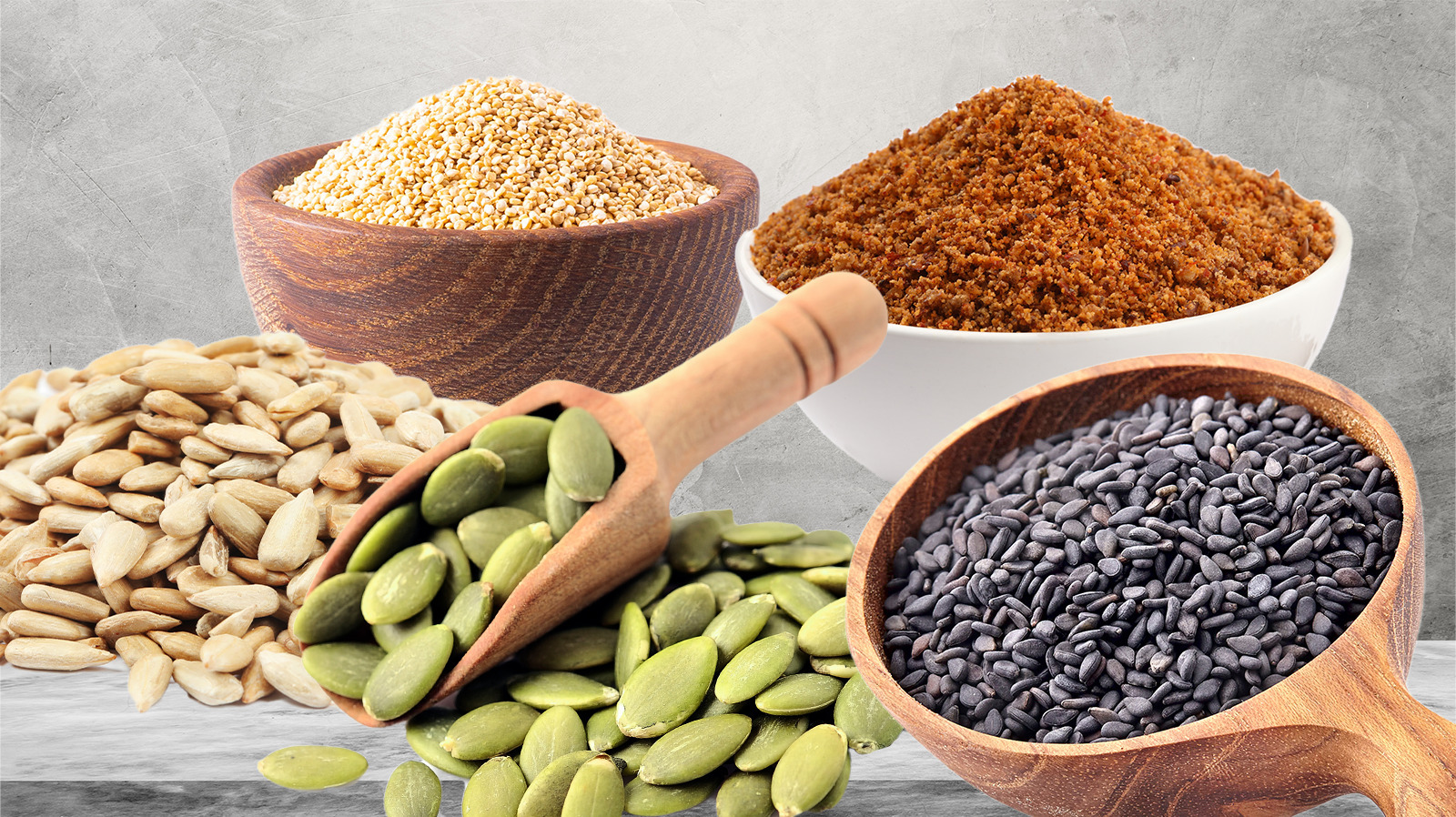Flax seeds
One of the most beneficial nutrients you get out of seed cycling are lignans, which support both oestrogen and progesterone regulation. While all four seeds contain lignans, flax seeds are the richest in this plant-based compound. They also contain omega-3 fatty acids which address inflammation and help produce healthier sex hormone (and cortisol) levels.
Pumpkin seeds
Pumpkin seeds contain zinc, which supports healthy testosterone levels, and might even lessen period pain and bleeding, says Morton. Pumpkin seeds also contain magnesium, which is responsible for over 500 reactions in the body—many of which are hormonal—and are rich in antioxidants that support ovaries and eggs.
Sesame seeds
Sesame seeds also modulate inflammation because they are rich in omega-3 fatty acids. They’re also rich in calcium, which supports your bones and even your mood.
Sunflower seeds
Sunflower seeds have iron, vitamins B6 and E, which can improve mood and breast tenderness, and selenium, which supports the thyroid. They also have magnesium and calcium for reproductive and bone health.
Benefits of seed cycling
Dr. Brighten and Morton say their clients have reported decreased breast tenderness, improved mood and energy, reduced PMS symptoms, fewer headaches and migraines, less period pain, and less hormonal acne while practicing seed cycling.
Seed cycling may have benefits for people with polycystic ovarian syndrome (PCOS), research has shown—specifically, it helps regulate their cycles, decreases symptoms from hormonal imbalances, and improves general reproductive health. Additionally, the method may help address commonly-reported menopause symptoms: The calcium in sesame and sunflower seeds may support bone health while the ligans in flax seeds may help reduce hot flashes, Brighten says.
Although seed cycling might be able to help some physical symptoms, it shouldn’t be thought of as your first line of defence. “Seed cycling by design was never meant to be a standalone treatment or therapy for anything,” Brighten says. The method can supplement various interventions you use to treat your symptoms, but it’s not something that can replace medications you might be prescribed, she says.
Risks of seed cycling
Fortunately, there aren’t many risks of seed cycling—unless, of course, you’re allergic to seeds themselves. If you are allergic or intolerant to flax, pumpkin, sesame, or sunflower seeds, you shouldn’t consume them and therefore shouldn’t try seed cycling, says Morton. (Sesame seeds are a common allergy that you might not even know you have, she adds.)
If you have a condition like diverticulitis, an inflammatory gastrointestinal disease, you are not advised to consume seeds and should not seed cycle, Brighten adds. If you’ve been diagnosed with another gastrointestinal disease like inflammatory bowel disease (IBS), you should always consult their doctor before trying seeds, she says.
Seeds might cause some gastrointestinal issues as you adjust, says Morton, especially if you aren’t used to eating fibre-rich foods. Otherwise, there aren’t many major risks. You can likely start seed cycling on top of other supplements and over-the-counter medications you’re taking and consuming the seeds during pregnancy is generally safe. That said, always consult a doctor first to determine the best next steps for you.


